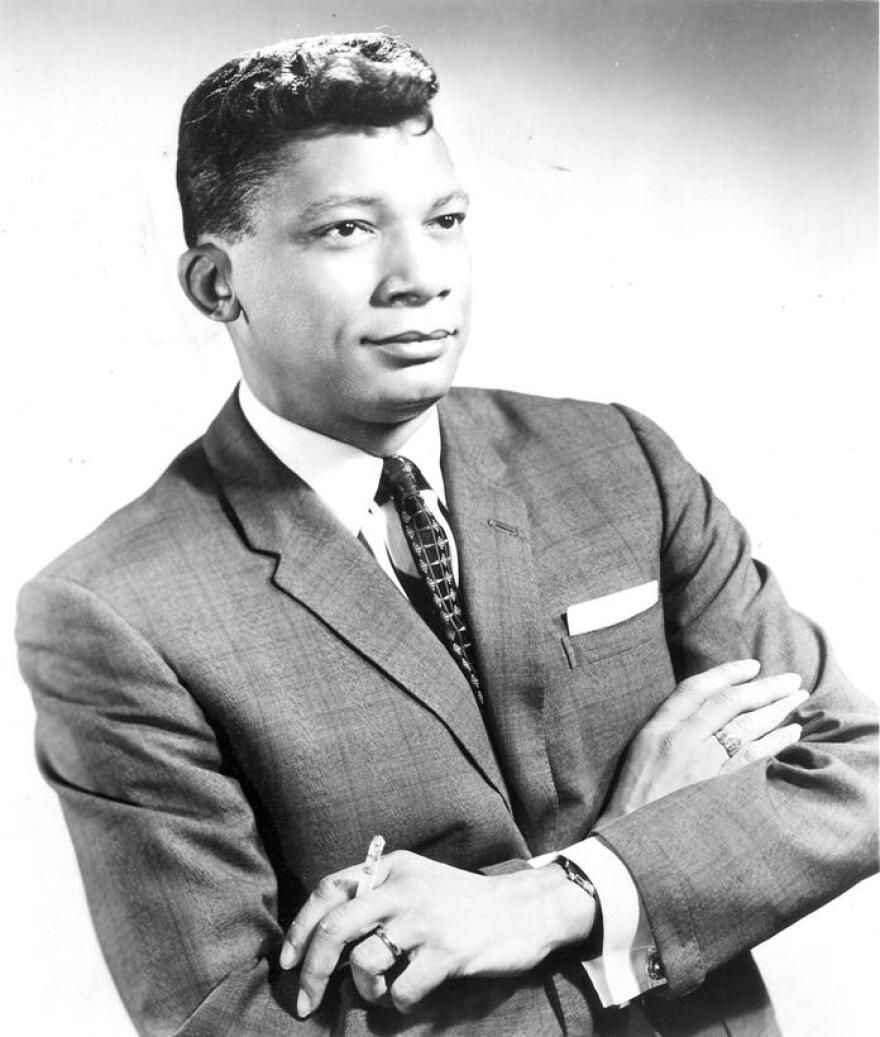John Maurice Hartman, known professionally as Johnny Hartman, was born on July 3, 1923, in Houma, Louisiana, and grew up in Chicago, Illinois. Renowned for his baritone voice and evocative interpretations of jazz standards, Hartman’s career spanned several decades and left an indelible mark on the genre.
Early Life and Education
Hartman’s family relocated to Chicago when he was an infant, and he was raised in a supportive environment that nurtured his musical talents. Showing an early interest in music, he joined the glee club in high school and further honed his skills. He later attended Chicago Musical College, a prestigious institution that played a significant role in his musical development.
Career Beginnings
During World War II, Hartman served in the U.S. Army, where he participated in various entertainment units, performing for troops and developing his stage presence. After his military service, Hartman returned to Chicago and began his professional music career.
His first break came in the late 1940s when he won a singing contest on the Amateur Hour radio program, leading to a stint with the orchestra of Earl Hines in 1947. With Hines, he recorded some of his earliest work, but the partnership was short-lived.
Rise to Prominence
In the early 1950s, Hartman’s career gained momentum when he joined Dizzy Gillespie’s big band as the male vocalist. This collaboration exposed him to wider audiences and showcased his ability to blend seamlessly with complex jazz arrangements. Hartman’s warm baritone and sophisticated style set him apart from his contemporaries, allowing him to interpret ballads with a unique sense of intimacy and emotion.
His most significant breakthrough came in 1956 with the release of his debut album, “Songs from the Heart” on Bethlehem Records. This album featured lush orchestral arrangements and established him as a compelling balladeer. Despite the quality of his recordings, Hartman struggled to achieve commercial success during this period, often overshadowed by more prominent figures in the jazz and pop worlds.
Collaboration with John Coltrane
The pivotal moment in Hartman’s career arrived in 1963 when he collaborated with the legendary saxophonist John Coltrane on the album “John Coltrane and Johnny Hartman”. Recorded in one session, this album remains a quintessential work in both artists’ discographies. The seamless blend of Coltrane’s expressive saxophone and Hartman’s deep, rich vocals produced timeless renditions of standards like “Lush Life” and “My One and Only Love.” This collaboration not only cemented Hartman’s place in jazz history but also broadened his appeal to a wider audience.
Later Career and Continued Influence
Following his success with Coltrane, Hartman signed with Impulse! Records and released several more albums, including “I Just Dropped by to Say Hello” (1963) and “The Voice That Is!” (1964). His smooth and emotive delivery continued to captivate listeners, although commercial success remained elusive compared to his earlier Coltrane collaboration.
Hartman continued to perform and record throughout the 1970s and 1980s, with notable albums like “Today” (1972) and “This One’s for Tedi” (1980). His work during these years was characterized by a consistent commitment to the integrity of the music, focusing on standards and contemporary songs that suited his vocal style.
Despite the ups and downs of his career, Hartman was revered by fans and fellow musicians alike for his dedication to the art of jazz singing. His ability to convey the emotional depth of a song with clarity and warmth made him a respected figure in the genre.
Legacy and Influence
Johnny Hartman passed away on September 15, 1983, in New York City due to lung cancer. Although he never achieved the widespread fame of some of his contemporaries, his work has experienced a resurgence of interest in recent decades.
Critics and jazz enthusiasts often cite Hartman’s collaboration with Coltrane as a high-water mark in vocal jazz. His recordings are frequently recommended to new jazz listeners for their accessibility and emotional resonance. Hartman’s legacy continues to influence vocalists who seek to combine technical precision with heartfelt expression.
In the years following his death, his music has been reissued and celebrated in various collections, ensuring that new generations of listeners can appreciate his contributions to jazz. His interpretation of standards remains a benchmark for vocal excellence, and his recordings are considered essential listening for aficionados of the genre.
Discography Highlights
- “Songs from the Heart” (1956)
- “And I Thought About You” (1959)
- “John Coltrane and Johnny Hartman” (1963)
- “I Just Dropped by to Say Hello” (1963)
- “The Voice That Is!” (1964)
- “Today” (1972)
- “This One’s for Tedi” (1980)
Conclusion
Johnny Hartman’s career is a testament to the enduring power of jazz and the artistry of a vocalist who knew how to make each song his own. His contributions to the genre, particularly through his iconic collaboration with John Coltrane, have secured his place in the annals of jazz history. Hartman’s voice, with its richness and emotional depth, continues to resonate, captivating listeners and influencing jazz vocalists around the world.


Comments are closed